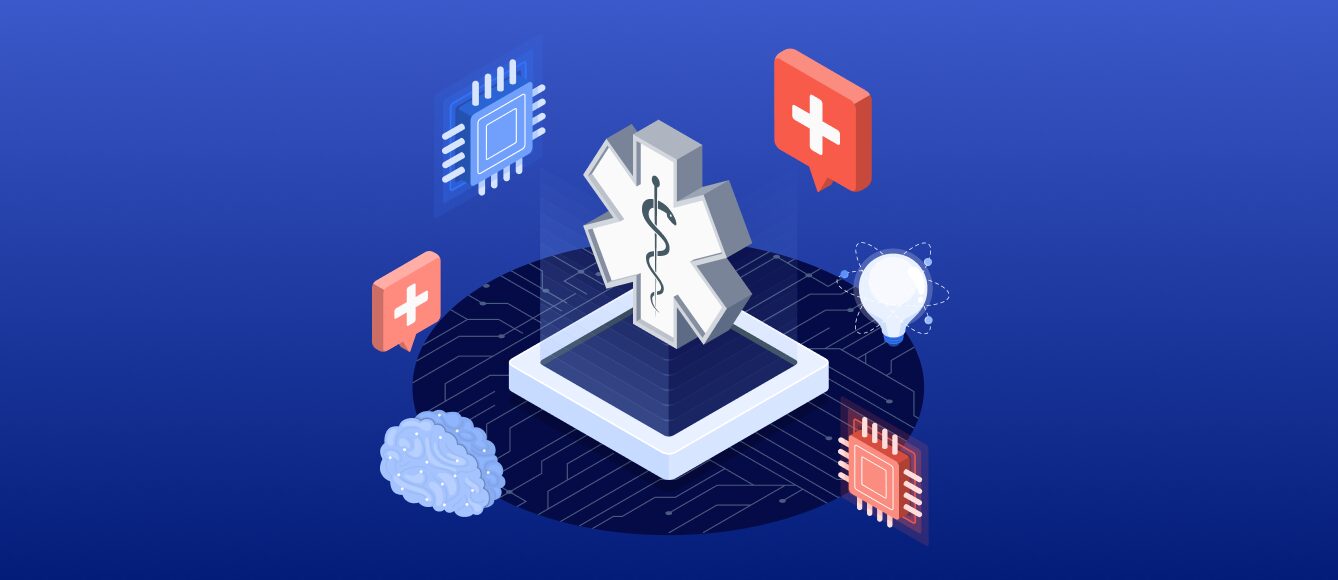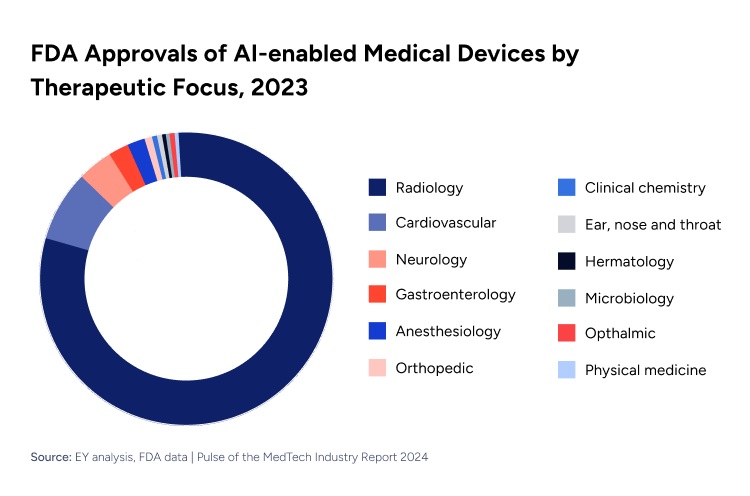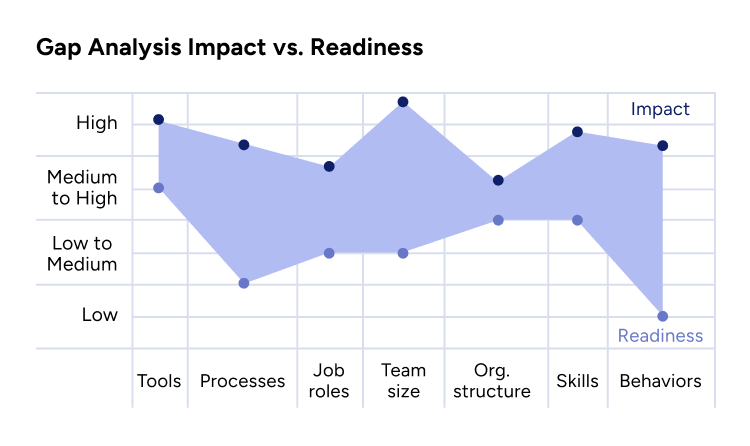Future of AI in Healthcare: Why AI is a Strategic Imperative



The healthcare industry stands at a critical inflection point, where cautious evolution is no longer enough to shape the future of AI in healthcare.
Forces such as persistent workforce shortages, escalating margin pressures, and the rapid advancement of Artificial Intelligence have converged, demanding an urgent and strategic response from leaders.This is not just about adopting new technology; it is about fundamentally redesigning the healthcare system for tomorrow.
The Strategic Imperative for Leaders
AI has transitioned from an experimental concept to an essential strategic priority for any organization in healthcare. Companies that successfully move beyond mere proof-of-concept (POC) will establish new industry standards, while those that fail to adapt risk being left behind.
Early adopters are already demonstrating substantial ROI on their AI investments:
- 54% of healthcare leaders report seeing real Return on Investment (ROI) within the first year of using generative AI.
- MedTech companies, in particular, could realize $14-55 billion annually in productivity gains and over $50 billion in new revenue from innovations driven by AI.
- The U.S. FDA alone authorized 223 AI/ML-enabled medical devices in 2023, contributing to a cumulative total of 1,016 by Q3 2024, with over 70% being Software as a Medical Device (SaMD), signifying AI's viability as a complete product.

Despite this proven potential, a significant implementation gap persists, creating a critical competitive differentiator.
Only 45% of AI applications in healthcare progress beyond the idea or POC stage, and just 30% of completed POCs reach production. This highlights that the real opportunity lies in execution excellence.
Challenges Hindering the Future of AI in Healthcare
The urgency for AI adoption is underscored by several critical market pressures:
The Workforce Crisis
The World Health Organization (WHO) projects a global shortage of over 11 million healthcare workers by 2030. Current inefficiencies exacerbate this, with nurses spending 15-28% of their time on low-value tasks and ICU doctors dedicating only 15-30% of their time to patient care, the rest being bureaucratic. AI offers a tangible solution, capable of freeing up 13-21% of nurses' time (240-400 hours annually).
Data Challenges
AI's success hinges on a robust data infrastructure. 80% of healthcare data remains unstructured. Poor data quality leads to inaccurate diagnoses, inappropriate treatments, patient harm, and weakened trust in technology. Alarmingly, less than one-third of companies report being truly data-ready for AI implementation. Building strong data quality frameworks is then essential.
Infrastructure Investment
Globally, 68% of leaders do not feel fully prepared to adopt and scale AI within their IT infrastructure. Healthcare lags behind other industries in digital technology adoption, still relying heavily on manual processes. Success requires immediate investment in modern data and tech systems, including cloud environments, robust digital cores, and enhanced cybersecurity measures.
Regulatory Evolution
While the U.S. FDA has made significant strides in approving AI/ML medical devices, in average clearance for AI/ML-enabled devices is four weeks longer than for non-AI/ML products. Navigating the evolving and ambiguous regulatory frameworks remains a critical challenge for executives. The progression of adaptive algorithms and generative AI has been particularly slow due to regulatory caution.
AI's Transformative Power: High-Impact Areas
To understand the future of AI in healthcare, we must explore where AI delivers the most transformative value across the system.

AI is fundamentally redefining the healthcare value chain, moving it from disconnected silos to a data-driven network. This shift unlocks value across numerous domains: Operational Infrastructure: AI, Machine Learning (ML), and Generative AI (GenAI) are embedded as core infrastructure to accelerate R&D cycles, optimize smart manufacturing (e.g., predictive maintenance, enhanced quality control), and improve supply chain management.
Shift from Reactive to Preventive Care: AI-enabled wearables, diagnostic platforms, and predictive analytics facilitate early detection, continuous biometric monitoring, and preemptive care escalation, transforming care models from treating acute illness to proactive risk management.
Minimally Invasive, Intelligent Devices: AI powers real-time image analysis, decision support, and precision in targeting during surgical procedures, supporting the shift towards smaller, less invasive interventions.
Integrated Digital Ecosystems: AI plays a crucial role in enabling virtual health, cloud-based diagnostic workflows, and interoperable data layers, fostering unified and coordinated care delivery.
The Consumer as System Driver: With over 90% of patients actively using digital health tools, AI supports a shift towards direct-to-consumer (DTC) models, personalized experiences, and solutions usable in home settings.
Business Model Reconfiguration: AI enables new value capture through value-based care models, "equipment-as-a-service" offerings, and platform-centric strategies that monetize data aggregation and analytics.
Accelerating the Future of AI in the Healthcare of Tomorrow
While the path to AI transformation has clear challenges, including skill gaps, data fragmentation, and the challenge of scaling beyond pilots, these are not insurmountable. For leadership, this moment represents a playing field for strategic reinvention.
To navigate this imperative, C-suite leaders must ask themselves three vital questions from the outset:
- What are the quantified threats and opportunities in our healthcare segment over the next 5-7 years, given AI's rise?
- How will AI adoptionimpact our EBITDA or equivalent economic impact within the next 18-24 months?
- What key cultural shifts are essential for AI to fit into our clinical and operational workflows?
The healthcare industry is shifting from disconnected silos to a data-driven network powered by AI. Data becomes infrastructure, and AI becomes a force multiplier for talent and process.
The organizations that act decisively today will shape the future of healthcare and define the next generation of care delivery. The window for strategic advantage is closing, and the imperative to act is now.
Go from “AI curious” to “AI operational” with our exclusive E-Book AI in Healthcare - The Executive Transformation Playbook.

Daniel is a Process Excellence Consultant with several years of experience at McKinsey. He has specialized in enhancing efficiencies in the automotive and healthcare industries, working with prominent companies such as Ford, Daimler, and Pfizer. Daniel has experience in leading cross-functional teams and utilizing processes focusing on lean methodologies and continuous improvement to drive operational success.
on a weekly basis.

